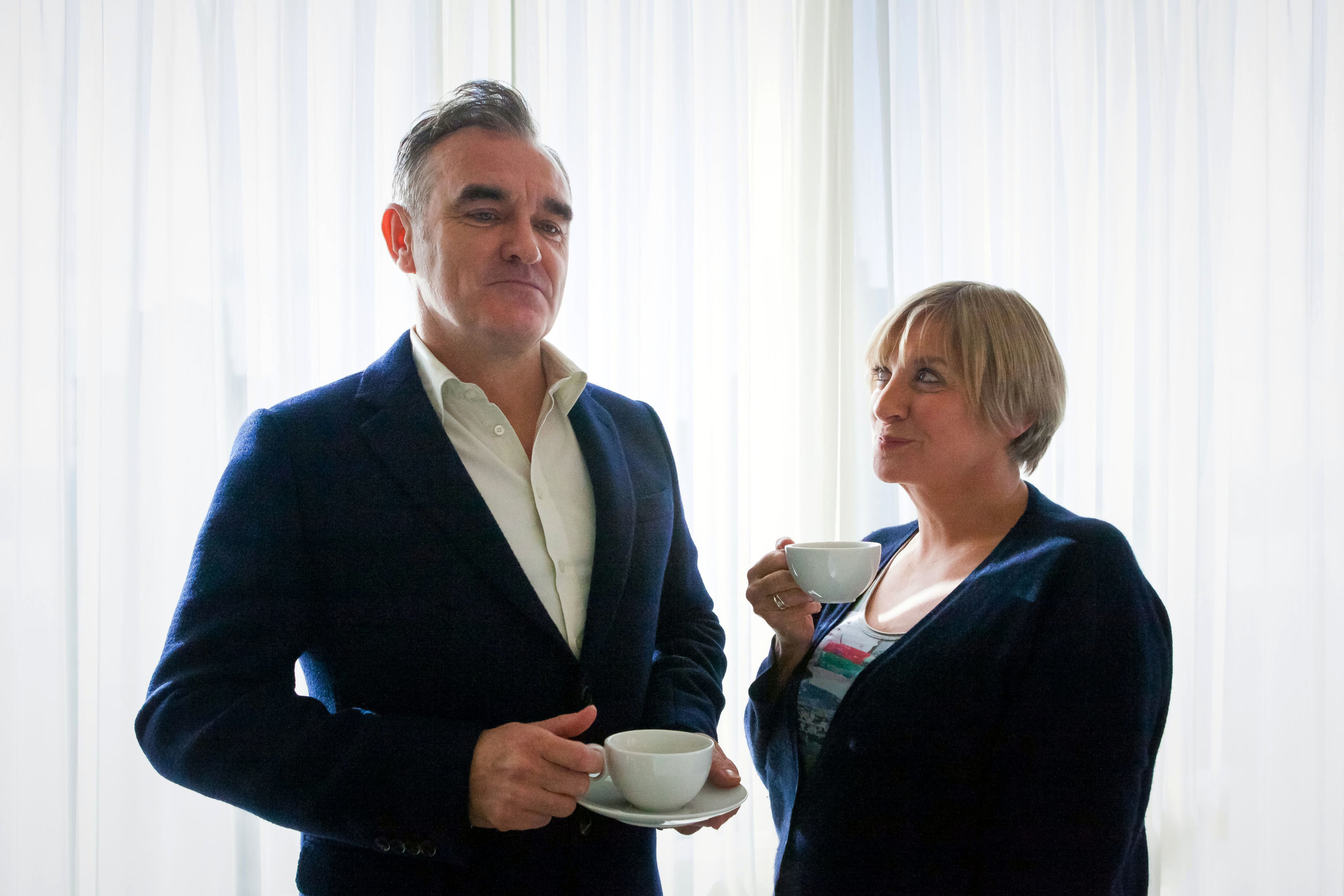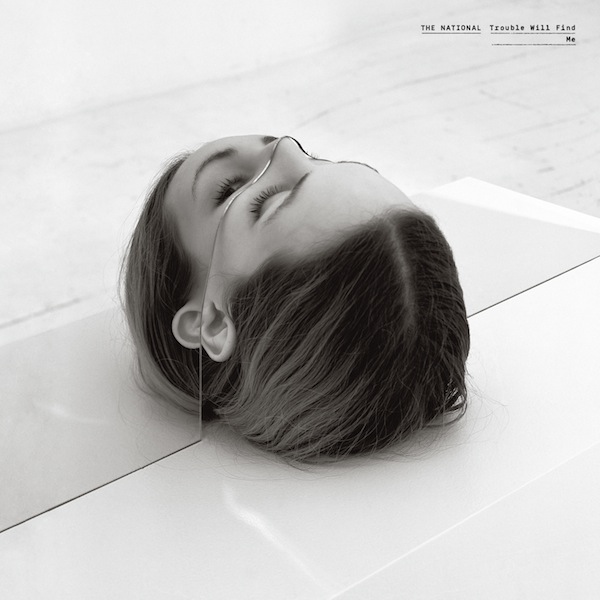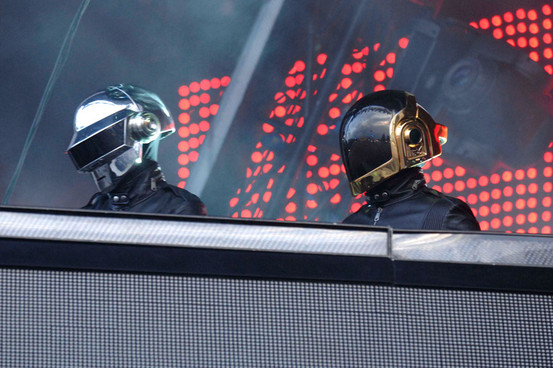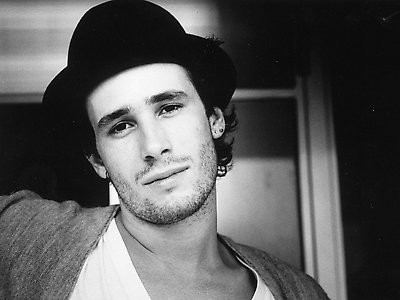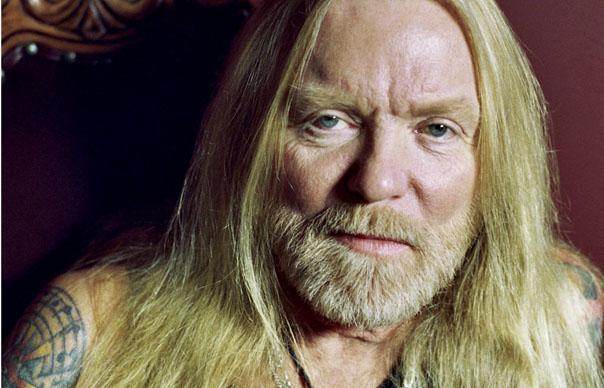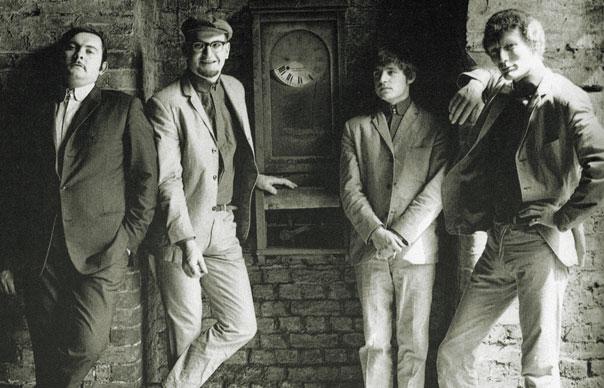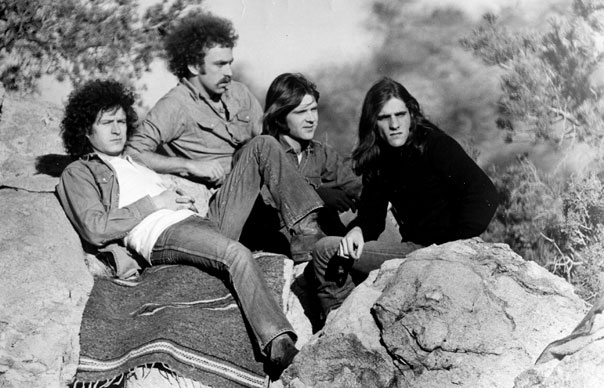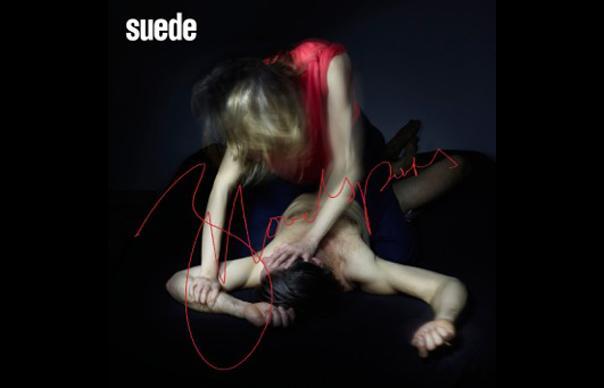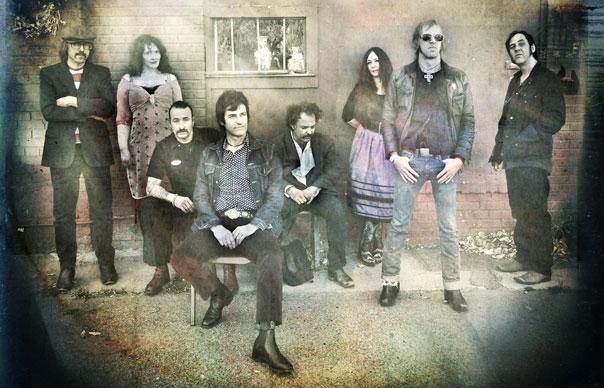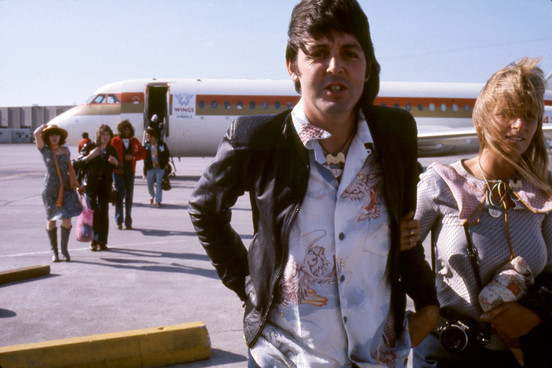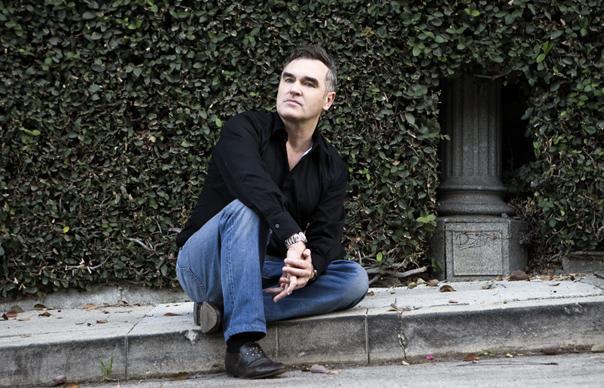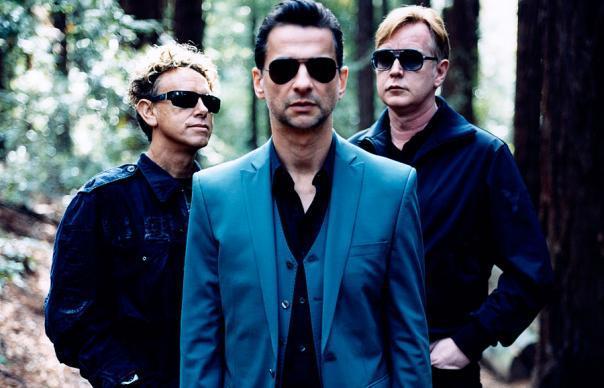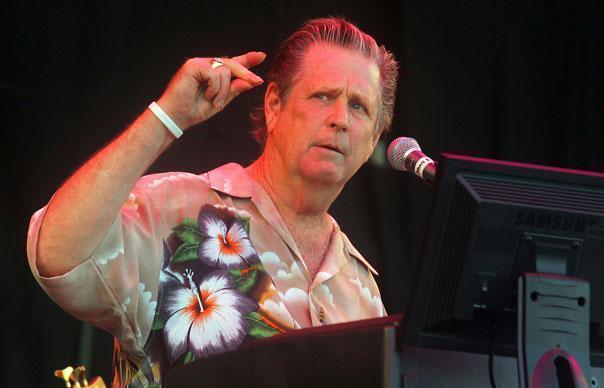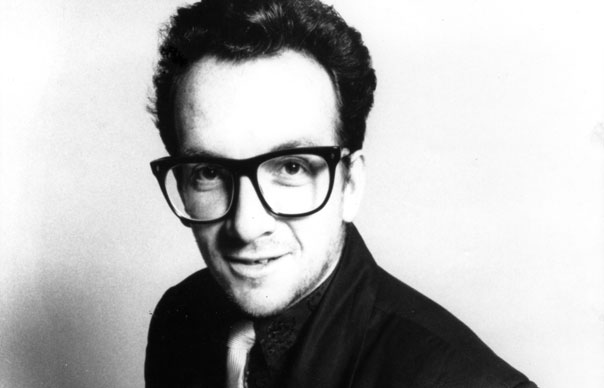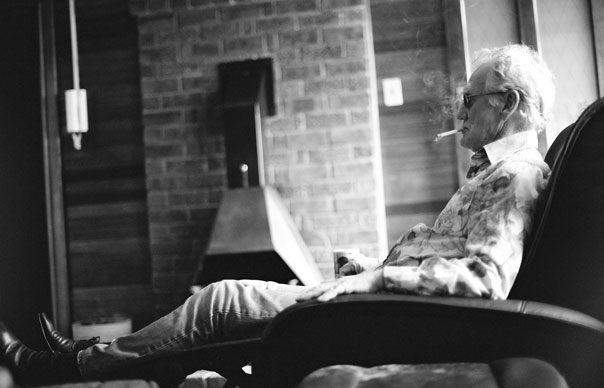Iggy & The Stooges’ new album, Ready To Die, is reviewed in the new issue of Uncut, dated May 2013, and out now. In this archive feature from Uncut’s Take 146 issue (July 2006), Iggy talks us through the highlights of his 40-year career – including skiing trips with David Bowie and a cameo from Princess Margaret… Interview: Jaan Uhelszki
____________________
THE STOOGES – THE STOOGES
(Elektra, 1969)
The band overcome sartorial concerns to unleash a raw classic on an unsuspecting world…
Iggy Pop: “When we were about to go into the studio, we were all really concerned with how much money the record company would give us for clothes. Especially Ron [Asheton, guitar] and Dave [Alexander, bass]. They were so excited they were going to go to New York where there was a shop called Ball Sergeant that had all the mod gear. They were going to mod out. Me, I was buying my clothes at a shop for pimps on Times Square. I had a little different look that I was going for. But what was really important other than that was our rehearsals. Stooges rehearsals never lasted too much more than 20 minutes. During them, I was writing, putting together the riffs and pieces of music so they would add up to songs, finishing words madly before we went to New York [to record the album]. We had four songs ready and we thought that was going to be our album. This was ‘1969’, ‘I Wanna Be Your Dog’, ‘No Fun’ and ‘Anne’. Each of the songs was meant to have a 7 to 15 minute instrumental after the conclusion of the song format. The good news was the song parts were good and the improv was good up to about a minute. The bad news was that after that, we hadn’t put the homework into making an improv stand up as a listening experience.
“I remember listening to playbacks and just thinking, ‘Well, maybe if I smoke another joint, ‘I Wanna Be Your Dog’, will sound more exciting on the sixth minute.’ But I knew what was up. So did [label boss] Jac Holzman. He came in and said, ‘Look, boys, you don’t have enough songs here.’ We said, ‘Oh, don’t worry about it, we’ve got more.’ I remember just knocking up some quick songs in the Chelsea Hotel. ‘Little Doll’ I wrote it in my head, just watching a groupie, a New York slick chick walking around across the hotel lobby. Ron came up with the riffs for ‘Not Right’ and ‘Real Cool Time’ and we were back in a studio the next day.
“What do I remember most about [producer] John Cale? I do remember he spotted that the guys didn’t play as well if I wasn’t dancing around. They just don’t. My guess is that there’s something about it that they find profoundly embarrassing and for that reason it’s titillating and it removes barriers somehow. They’re not the kind of guys that would ever do something like that, and the more I dance, the more their heads go down and stare at their toes, and the better they played. But it was exhausting. Fucking exhausting.”
THE STOOGES – FUN HOUSE
(Elektra, 1970)
…in which Iggy perfects the correct time to drop LSD during the recording process.
“What I wanted for the group was more aggression for the music, and a more complex content. On this album the lyrics are getting a little wilder and the music is getting slightly pushier. Steve MacKay’s sax had a lot to do with it, but it was also that now everybody could play a little better. We’d been playing longer. Also, I was taking more LSD than I had when we recorded the first one and I think that had something to do with it, too – taking acid and singing. The way I would do it was, I would just make sure I didn’t take the acid too early. You’d have to take it just before you were going to work and then start working just before you felt it coming on. It would delay the disorientation and usually just give a certain sort of edge to everything. Put everything into a more spatial context.
“Of everything on that album, the one that really stood out to me was ‘1970’. That’s the one of which I’m most proud, as I put that together and handed it to the group. I like the way it’s written and I love the way it’s played, and I like the way it progresses from this kind of a rock blues, and then it goes into the sax so beautifully played, and the groove changes. It gets pretty fierce at the end and I like that, too. You know, Jack White, ever the smartass, once asked me, ‘So, did you ever record “1971”?’”
THE STOOGES – RAW POWER
(Columbia, 1973)
With his band in disarray, Iggy and new collaborator James Williamson head to London. Ron and Scott Asheton, though, are not far behind…
“We were all one step away from becoming junkies, and the ones that weren’t junkies were out of touch with reality. I was living in London and the idea was that we’d form a band and make an album. I got a corporate goodbye present, or sabbatical present, from Elektra – a nice Nikon camera – and I hocked it for a couple hundred bucks and used the money to buy a ticket to Florida. I was going to hook up with Steve Blue [Steve Paul of Blue Sky], who was handling the Winter brothers. He was even less interested in The Stooges than the English people. So I went up to New York on the rest of the ticket and through Danny Fields I hooked up with MainMan management, who were our best shot. At least they’d respect art. And they did. They put us up. We had a place to rehearse, a good studio, but we didn’t really relate to English musicians or producers and we resolved to do it ourselves, with Scott and Ron. They weren’t thrilled about that, but they respected us and left us alone.
“The band had a nice house to live in and when I couldn’t come up with the lyrics and live with them at the same time, they put me in Blakes Hotel. I was staying in the basement. I’d stick my head out of the door and there would be Lord Snowdon and Princess Margaret. ‘Oh, I say, it’s Iggy Pop.’ My personal favourite here is ‘Shake Appeal’ as that was the only three minutes of my life when I was ever going to approximate Little Richard. But ‘Search And Destroy’ is the masterpiece. And I knew it when we did it, so I felt a sense of relief that my immortalisation, basically, was secured.”
IGGY POP – THE IDIOT
(RCA, 1977)
Written and recorded with David Bowie while he was beginning his Berlin trilogy. Iggy appears content to let the Dame call the shots.
“No, I never felt competitive with David at all. He was, and is, much more successful in worldly terms than I’ll ever be and he’s a very, very sharp banana. It was just I thought he had a set of complementary skills and I thought he had access to a lot of knowledge that he could offer me, and then see what happened. I think I functioned as an outlet for his overflow. Because there are things he did with me that he couldn’t do as David Bowie, because it would have slowed him down or might have been a wrong move. And then he was also able to use me to practise. He did the same thing on Blah Blah Blah that he did with Lust For Life, and here on The Idiot. He made an Iggy album first, but watched the engineers there in the studio, learned how they worked, thought about it, had a chance to get to know the desk, and have daydreams about his own record while he worked on mine. So, on a practical level that made a lot of sense for him. And it’s not unusual that people, when they’re very talented, who get into the kind of key period he was in then, have too many ideas they don’t necessarily exactly want to do themselves, but that might lead them to other places, you know? But I never felt any competition, there was no point. He was always gonna win.”
IGGY POP – LUST FOR LIFE
(RCA, 1977)
Iggy’s second collaboration with Bowie, recorded in Berlin. Written, it seems, on a ukulele.
“The big thing about Lust For Life was we’d been on tour with a rock band. We’d been playing [1977 album] The Idiot, as well as Stooges songs onstage. So we had a band all set, and they wanted to rock. Bowie was tired of spending time on my projects and I think he wanted to get it over with really quickly, so: ‘Let’s just rock and get this guy out of my hair.’ The whole thing was written sitting on our backs in his apartment with his kid’s ukulele. He nicked a call signal off a US Armed Forces broadcast and did the changes. ‘Call this “Lust For Life”,’ he said. ‘Now come up with a song.’ I did it.
“We booked one day in the studio to write and he sat at the piano and he’d name famous rock songs and say, ‘OK, we’re now gonna rewrite “_____”.’ Then he’d play some music and I’d record it. It was total cynicism. ‘We’re now gonna rewrite this one.’ Then he’d knock out something and I’d record it. ‘Sixteen’ I did on my own, it was the sort of thing
I used to write for The Stooges.
“‘Turn Blue’ was left from some experimental work I had done with Bowie in the mid-’70s when we were both out of our minds on coke in LA. So, we had a structure and we went in and recorded it with a very resourceful German engineer who looked like the devil. It was done in a relatively small room in eight days and all during that time my diet was cocaine, German grosse bier, sausages and bratwurst. Appropriate. We had the meat on the brat. ‘The Passenger’ was derived from the Antonioni film, the Morrison poem, and a lick that I was doodling in the studio. It was never supposed to be a song. They used to let me go walkies with the group for an hour in the Neuropsychiatric Institute in Westwood and I saw Antonioni’s The Passenger was playing at the Westwood Theater and it made a big impression on me.”
IGGY POP – BLAH BLAH BLAH
(A&M, 1986)
A synthed-up and sober Iggy hooks up with Bowie and ex-Sex Pistol Steve Jones. Gets his first UK Top 10 along the way with “Real Wild Child”.
“Somebody gave me some money by mistake, and before they found out I called up Steve Jones, who was just out of rehab, and said, ‘I’m going to come to California and rent a big house. Let’s make some music.’ But I had to leave LA, because the person who gave me the money found out, and because I didn’t think I’d survive long if I adopted a full-on LA rockist approach. I was sober. I was married. Steve would say, ‘Ditch your wife and we’ll go out and get some and go drinking.’ He was sober, too, but he was still into the full boots and saddle thing. I hesitated, and went back to New York where I had a little apartment I was renting with my loot from ‘China Girl’. I ran into Bowie. He was all excited and wanted to play me his new demo for this elaborate song. I said, ‘I’ll listen, but let me play you mine.’ I could tell he thought it wasn’t going to be any fucking good, but he put it on and ‘Cry For Love’ came on pretty much as you hear it on the record. He got real quiet and he said, ‘Listen, I can do production on that.’ That made sense for me, and I went to Switzerland twice – on what were basically ski trips – to do some writing for it. I skied because Bowie skied. It was a pain in the ass, but I learned. People constantly expected I was going to break my back and die.”
IGGY POP – SKULL RING
(Virgin, 2003)
Iggy reunites with Scott and Ron Asheton for four tracks. Peaches, Green Day and Sum 41 all bear witness.
“Just to clear things up, I didn’t buy my skull ring after I made the album. It’s a little teeny skull ring that I got from [tattooist] Jonathan Shaw back in the ’90s. And it wasn’t the inspiration for that album, either. I was singing about a sort of death chic. It was meant to be a commentary on power chic, death chic, lust chic. That was the idea.
“As for all the songs, I didn’t want to disappoint anybody. I wanted to do again more of what I’d done with The Stooges. I didn’t want to disappoint [backing band] The Trolls, so I put all the Trolls stuff on it that I possibly could. And I liked a lot of it, too, almost all of it, quite a bit, you know, or I wouldn’t have put it on.
“And then I wanted to do a couple with Green Day, and the next thing you know there was a lot of songs. But Peaches was the cool one. I wasn’t intimidated by her, but I was definitely on my toes because I’d heard her records. We did the tracks without meeting physically and then I met her later. I had her over to my house. She would say stuff like, ‘Oh, well, last night I was trying to fuck one of The Strokes but he wouldn’t go for it.’ Chicks aren’t generally going to talk to you like that.”
THE STOOGES – THE WEIRDNESS
(Virgin, 2007)
It took 34 years for a bona fide follow-up to Raw Power, and as Iggy taunts in the lead off track: “You can’t tell me this isn’t suave.” It’s that, and more.
“We all had a freakout when we realised [bassist] Mike Watt was posting Twitters. He was Twittering about the sessions. We’re all old school. You know, none of us go online, so we flipped out. We came down on him hard. To us, it was like the world’s waiting for our secret project. I had given him a CD that said ‘Secret Plan’. It was kind of meant to be a joke. It was the demos, just so he could learn the songs. He showed the plan to somebody at Pitchfork, who wrote a commentary.
“‘Trollin’’ was supposed to be the middle part of Skull Ring. I thought it broke the energy so I didn’t want to put it on that record. But Scott Asheton insisted. He said, ‘I want it on the record and I want it first so we can show people, look, this is what’s going on.’ So I said, ‘OK, Scott.’ ‘ATM’ was just about how I just find myself using them a lot once
I got any money. Always seemed to be a reason why I had to go get cash, pull it out. I’m fascinated with that invention; it’s relatively recent in terms of my lifespan. The line ‘My dick is turning into a tree’ is very hippy. We have tree huggers, y’know? I was particularly proud of that line. The people that don’t like it? That’s OK, it’s not for everybody.”
IGGY POP – PRÉLIMINAIRES
(Virgin, 2009)
Iggy does French jazz. Or, at least, his approximation of it. Assuming he’d been born black. In New Orleans. In the 1920s.
“I heard about this writer Michel Houellebecq who’s supposed to be a bad boy. So since I specialise in working with juvenile delinquents, or now with mature delinquents, I thought I’d better check him out. I ended up in a creaky old French hotel on a dirty beach in Normandy spending four days reading his novel. I’d read it all day, then have dinner over the bar with Sir Ron Asheton. Four days of that would make anybody crazy. Me, I found it reassuring someone was as negative as I am! About a year later I had three Euro geeks in my backyard. Every 10 or 15 years I’ll meet some sort of a Euro nerd who is bright and wise enough to give me carte blanche on something, then leave me alone. First there was Bowie, then there was [director] Alex Cox, and here were these guys. They wanted to make a movie about this guy who truly qualifies as an eccentric and they wanted me to do the music. Houellebecq had managed to talk a bundle of money out of a film company to let him make a movie out of his book, which was for sure going to be a financial disaster. That was fucking hilarious, so I said yes. I was sitting listening to a Louis Armstrong LP that day, thinking about how much I’d liked to have been around New Orleans in the ’20s. And of course I’d have wanted to be black, talented, and not poor. So I wanted to write songs like I was that guy.”


